CAPTURA Regional Workshop
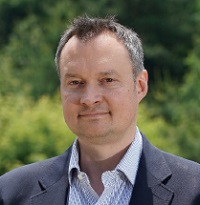
Opening Remarks: how it all began for CAPTURA
Florian Marks
13:15 – 13:25 (KST)Dr. Florian Marks, MPH, Ph.D. is the Deputy Director General of IVI’s Epidemiology, Public Health, Impact (EPIC) unit. Dr. Marks has over 20 years of experience conducting epidemiological studies and providing technical expertise in the field of global health; particularly in low-income countries. He designs and oversees epidemiological studies investigating a wide range of bacterial and viral infectious diseases. Dr. Marks holds an academic appointment within the Department of Medicine, University of Cambridge, UK as well as the Heidelberg Institute for Global Health and has been instrumental in setting up joint programs leveraging the unique strengths of both universities and the IVI.

CAPTURA’s approach for metadata and data management
Jenny Joh
13:15 – 13:25 (KST)Joh is an Associate Researcher at the International Vaccine Institute. She has been working on the CAPTURA project since its inception, acting as the country focal point in the South East Asian region as well as coordinator for data management activities across the consortium. Prior to her time at IVI, she completed her MSc at the London School of Hygiene and Tropical Medicine studying Control of Infectious Diseases in global settings.

CAPTURA’s approach for AMC and AMU data analyses
Emmanuel Eraly
13:45 – 14:20 (KST)Emmanuel Eraly is a public health specialist with over 10 years of professional experience with the World Health Organization in multi-cultural and multi-national settings across Asia and Europe. Manu supported WHO’s COVID-19 emergency response in Asia-Pacific Region on Health Systems Strengthening and led the development and implementation of systems to monitor antimicrobial consumption throughout the Asia-Pacific Region. Since 2021 Manu Eraly is a consultant on the CAPTURA project supporting antimicrobial consumption monitoring across several countries in Asia.
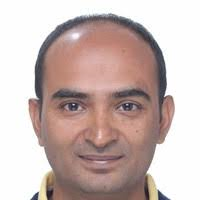
CAPTURA’s approach for AMR data analyses and capacity building
Nimesh Poudyal
14:20 – 14:55 (KST)Dr. Nimesh is a Clinical microbiologist with 15 years of experience working in LMICs. He has been associated with IVI in the Epidemiology and Public Health Research Department from 2016. Presently, he serves as Project lead for the CAPTURA project, as well as the EQAsia lead from IVI and provides support to RADAAR as subject matter expert. Outside of AMR, Dr. Nimesh is supporting HPV vaccine clinical trials in Thailand and a cholera control program in Nepal.

Strategies for Regional Surveillance and Aggregated Analyses
John Stelling
14:55 – 15:30 (KST)Dr. John Stelling is Co-Director of the WHO Collaborating Centre for Surveillance of Antimicrobial Resistance based at the Brigham and Women’s Hospital in Boston. He received his undergraduate degree from Johns Hopkins University and Master’s in Public Health from the Johns Hopkins School of Hygiene and Public Health. Since 1989, he has developed, disseminated, and supported the free WHONET software, currently used to support surveillance activities in over 130 countries and over 2,300 hospital, public health, food, and veterinary laboratories. He is also a former Medical Officer with the WHO Antimicrobial Resistance Containment Unit.
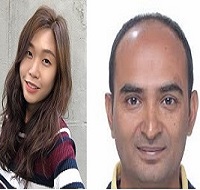
Overview of CAPTURA countries in South East Asia and South Asia
Jenny Joh, Nimesh Poudyal
13:15 – 13:40 (KST)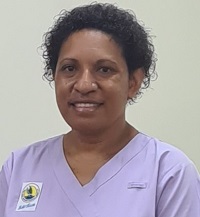
Papua New Guinea: Early AMR surveillance network
Gabriella Ak
13:40 – 14:00 (KST)Dr. Gabriella Ak holds her MBBS (Bachelor of Medicine and Surgery) from the University of Papua New Guinea (UPNG), master’s in medicine-General Pathologists from (UPNG), and her Post Graduate Diploma in Medical Microbiology-with the Pacific Region Infectious Disease Association (PRIDA). She is currently a Fleming Fund Fellow.
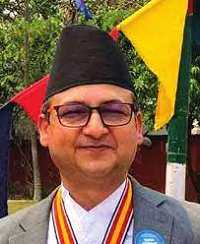
Nepal: Expansion of AMR surveillance network
Madan Kumar Upadhyaya
14:00 – 14:20 (KST)Dr. Madan Kumar Upadhyaya is the chief of the Quality Standard and Regulation Division of the Ministry of Health and Population. Dr. Upadhyaya is also the member secretary of the AMR Steering Committee and Chair of the National Technical Working Committee for human health. Dr. Upadhyaya has worked in Nepal’s health sector for around two decades. He was among a few health administrators that gained recognition and award for better hospital management during COVID-19.
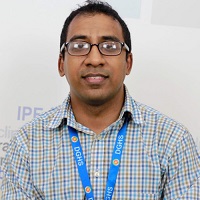
Bangladesh: Capacity building and expansion of AMR data volume
Aninda Rahman
14:20 – 14:40 (KST)Dr. Aninda Rahman is an epidemiologist and medicine graduate. He is working as the program manager for AMR, Hepatitis and Diarrhoea under the Communicable Disease Control (CDC) program of the Ministry of Health in Bangladesh. He is passionate about public health, has been involved with various national policy documents preparation already and wants to build his career in communicable disease control aspects.

Bhutan: Early efforts in AMU
Pem Chuki
14:40 – 15:00 (KST)Dr. Pem Chuki holds her MBBS (from Sri Lanka), MD (from AFMC, India), DTM&H (from LSHTM, London), and is a Certified infection prevention and control Officer (HFHS, USA). She also works with the Antimicrobial stewardship unit (AMSU), Jigme Dorji Wangchuck National Referral Hospital, Thimphu, is a Fleming Fellow, and is part of the National Center of Antimicrobial stewardship (NCAS) group at the Doherty Institute at Melbourne University in Australia.

Lessons learned, importance of utilisation of data and how CAPTURA efforts can inform next steps and initiatives
Bill MacWright
15:00 – 15:25 (KST)Bill MacWright is the Managing Director and CEO of Public Health Surveillance Group, a global consulting group focused in improving national and regional surveillance and policy for infectious disease and AMR in Asia and Africa. William is an Epidemiologist and health systems expert, with vast experience in enhancing surveillance to inform response, planning and decision making. He has worked in 25+ countries throughout Africa and Asia, in support of Ministries, bilateral agencies (e.g., WHO, UNDP, GAVI), funding agencies (e.g., BMGF, Global Fund), and international NGOs. Bill is a Co-PI on CAPTURA for South and SouthEast Asia and also a co-PI for RADAAR- a regional Fleming Fund project in Asia and Africa, focused on policy and catalyzing the regional level to combat AMR. Some of his areas of areas of expertise include infectious disease surveillance, AMR, Typhoid/ paratyphoid burden and vaccines, IHR, and zoonotic disease.

Next steps for Fleming Fund
Tom Pilcher
13:15 – 13:25 (KST)Tom Pilcher is Deputy Head of the Fleming Fund with the Global Health Security Team of the Department of Health and Social Care (DHSC). Tom Pilcher currently leads the Fleming Fund’s diplomatic engagement on over 20 countries in Africa and Asia. Tom also oversees the programme’s regional grants and the Global Research on AMR (GRAM) Project, which recently published the first comprehensive account of global AMR burden. Tom Pilcher has previously worked in the Foreign and Commonwealth Office in Africa and Latin America. He also worked in Scottish Government as a health policy advisor.

The power of regional coordination to establish robust AMR surveillance system
Pascale Ondoa
13:25 – 14:05 (KST)Dr. Pascale Ondoa is the Director of Science and New Initiatives of the African Society for Laboratory Medicine (ASLM) since 2016. She holds a medical degree from the University of Yaoundé, Cameroon, and a PhD in Virology from the University of Antwerp. She provides scientific and technical leadership to the ASLM team, with the overall goal of advancing the laboratory profession, science and practice. She particularly focuses on addressing gaps of the laboratory systems and networks in African countries. She leads several projects and programmes addressing AMR, diagnostics, external quality assessment, workforce development and laboratory policies covering more than 30 countries in Africa. Pascale Ondoa is a member of the editorial board of Lancet Microbe. She authored 70 peer reviewed scientific publications.
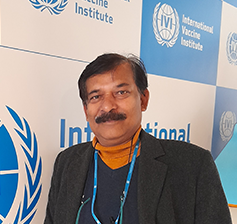
The Way Forward: Policy and Advocacy
Satyajit Sarkar
14:05 – 14:45 (KST)Satyajit Sarkar is the Principal Investigator, Project Coordinator and the Policy & Advocacy Lead for the RADAAR Project. He comes with nearly 30 years of hands-on experience in strategy development and implementation of large-scale socio-behavioral change, risk communication, and policy advocacy initiatives, including in conflict and emergency settings. He has previously worked with WHO, FAO, and UNICEF on several flagship and large-scale initiatives, including AMR.
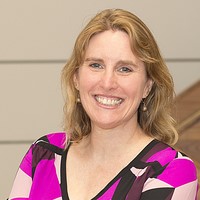
The Way Forward: Capacity Building
Catrin Moore
14:45 – 15:25 (KST)Dr. Moore led the Global Research on AntiMicrobial resistance (GRAM) project based in the Big Data Institute, University of Oxford. Partnered with the Institute for Health Metrics and Evaluation (IHME) and Tropical Medicine, they analysed global data to estimate the global burden of antimicrobial resistance (AMR). Dr Moore is a member of the World Health Organization Advisory Group on Critically Important Antimicrobials (AG CIA) for Human Medicine and is a mentor for Fleming Fund Fellows in Eswatini. Dr. Moore works on studies to improve the use of interventions including antibiotic and diagnostic stewardship in low- and middle-income countries (LMICs) to reduce the unnecessary prescribing of antibiotics. Now based at St George’s, University of London she is an investigator on the Antimicrobial Resistance, Prescribing, and Consumption Data to Inform Country Antibiotic Guidance and Local Action (ADILA) project.

Closing Remarks from CAPTURA
Marianne Holm
15:40 – 15:50 (KST)Dr. Marianne Holm is a medical doctor and epidemiologist and currently the Senior Scientific Manager of Infectious Diseases at Novo Nordisk Foundation, Denmark. She previously led the epidemiology and public health team at the International Vaccine Institute in Seoul, where she was responsible for the coordination and implementation of two Fleming Fund Regional Grants (CAPTURA and EQASIA).

Final closing remarks form Mott MacDonald
Toby Leslie
15:50 – 16:00 (KST)Dr. Toby Leslie is the Global Technical Lead for the Fleming Fund management agent at Mott MacDonald. He is an infectious disease epidemiologist and has worked in LMIC settings and programmes for more than 20 years. He joined Mott MacDonald in 2015 and has been with the Fleming Fund programme since its inception in 2017.
